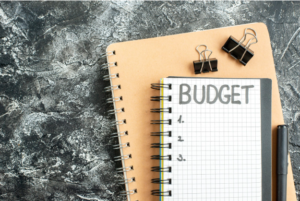
Financial Literacy Month: 6 Ways to Limit Impulse Buying
We’re still in the financial literacy month and this time we’d like to discuss Impulse Buying, which is a common challenge for many of us. You know those impulsive purchases we make without giving them much thought. Even though they might feel good right now, they could mess with our budget.
Impulsive buying is a habit that can affect our financial well-being rather than just an occasional indulgence. It may result in an overwhelming debt and keep us from achieving our financial goals. But fear not—there are strategies for breaking this habit.
What is Impulse Buying?
Impulse buying is the act of making an impulsive, unplanned purchase. It is often driven more by feelings than by needs. Even if it wasn’t on your agenda, you might find something in a store or online and decide to buy it right away. This may cause financial stress and can frustrate your budget.
Why Do We Buy on Impulse?
Impulsive purchases are caused by a variety of factors. Sometimes, it’s all about the excitement or delight of acquiring something new. At times, it’s a coping mechanism or a means of cheering ourselves up. Store designs and advertisements are also intended to lure us in and cause us to make impulsive purchases.
1. Setting Clear Financial Goals
Setting definite financial goals is a good way to stop yourself from impulsively buying things. Knowing what you’re saving for makes it easy to refrain from making unnecessary purchases.
Having goals helps your money have a purpose. Remind yourself of these goals whenever you find yourself tempted to make an impulsive purchase. Ask yourself, “How does this purchase help me get closer to my goal?”
Consider what matters most to you and your family first. Establish both short- and long-term goals: be specific about how much you need to save and by when. This clarity will aid in the direction of your spending decisions.
2. Making a Budget and Sticking to It

A well-thought-out budget is an effective tool in the struggle against impulse buying.
Make a list of all of your expenses and your income first. Set aside particular amounts for each of your needs: housing, food, transportation, entertainment, and savings. Be honest with yourself; your budget should represent your real lifestyle, not a fantasy.
The difficult part of budgeting is staying within it once it’s set up. This entails choosing wisely what to buy and sticking to your spending limit.
3. The Waiting Period Rule
The waiting period rule entails giving yourself a set amount of time to consider a purchase before making it.
Select a time limit for your waiting period, such as a day or a few days. Wait until this moment has passed before making any purchase. Consider whether you actually need the item during this time, or if it’s just a fleeting desire.
During this time, you can think about the item’s value and how it will affect your spending. Often, the desire to buy fades. Also, you may find that the item isn’t as necessary as you initially thought.
4. Differentiating Needs from Wants
Needs are necessities—things you need in order to survive and work. They consist of things like food, clothing, shelter, and transportation. These are expenses that you cannot negotiate and should be at the top of your budget.
On the other hand, wants are things you would like to have but are not necessary for your basic well-being or survival. These might be the newest gadgets high-end clothing, etc.
Consider whether you really need or want the item before you buy it. If it’s a want, think about whether it fits into your spending plan and supports your financial goals. This routine discourages impulsive purchases and encourages more deliberate financial decision-making.
5. Avoiding Temptations and Triggers
Recognizing and avoiding the circumstances that trigger impulsive purchases is crucial for successfully limiting this type of spending. These triggers may be situational, emotional, or even environment-specific.
First, identify the triggers that lead you to buy things on impulse. Some people are triggered emotionally by things like stress or the need to improve their mood. For others, it might be situational, such as when they’re in the vicinity of sales or when they’re shopping online.
Take action to prevent your triggers once you are aware of them. If your impulsive purchases are a result of stress, consider trying some stress-reduction methods like meditation or physical activity. Unsubscribe from marketing emails if sales tempt you, and you may refrain from exploring stores.
6. Using Cash Instead of Credit

When you make a cash payment, the money actually leaves your hands. It’s easy to forget how much you’re spending when using credit cards because the transaction feels less real.
Set aside cash each week or month for luxuries like shopping and eating out. The moment the money runs out, it’s obvious that you should stop spending.
Final Thoughts
Impulse buying can lead to debt or put a strain on your finances. You can adjust and get better at managing your finances, but if you’re already struggling with debt, you don’t have to do it alone. You can speak with one of our debt experts at EmpireOne Credit. Your debt can be reduced by up to 80%, and interest will stop immediately. Call us at (416) 900-2324 to schedule a free consultation with us. Being debt-free feels good!





